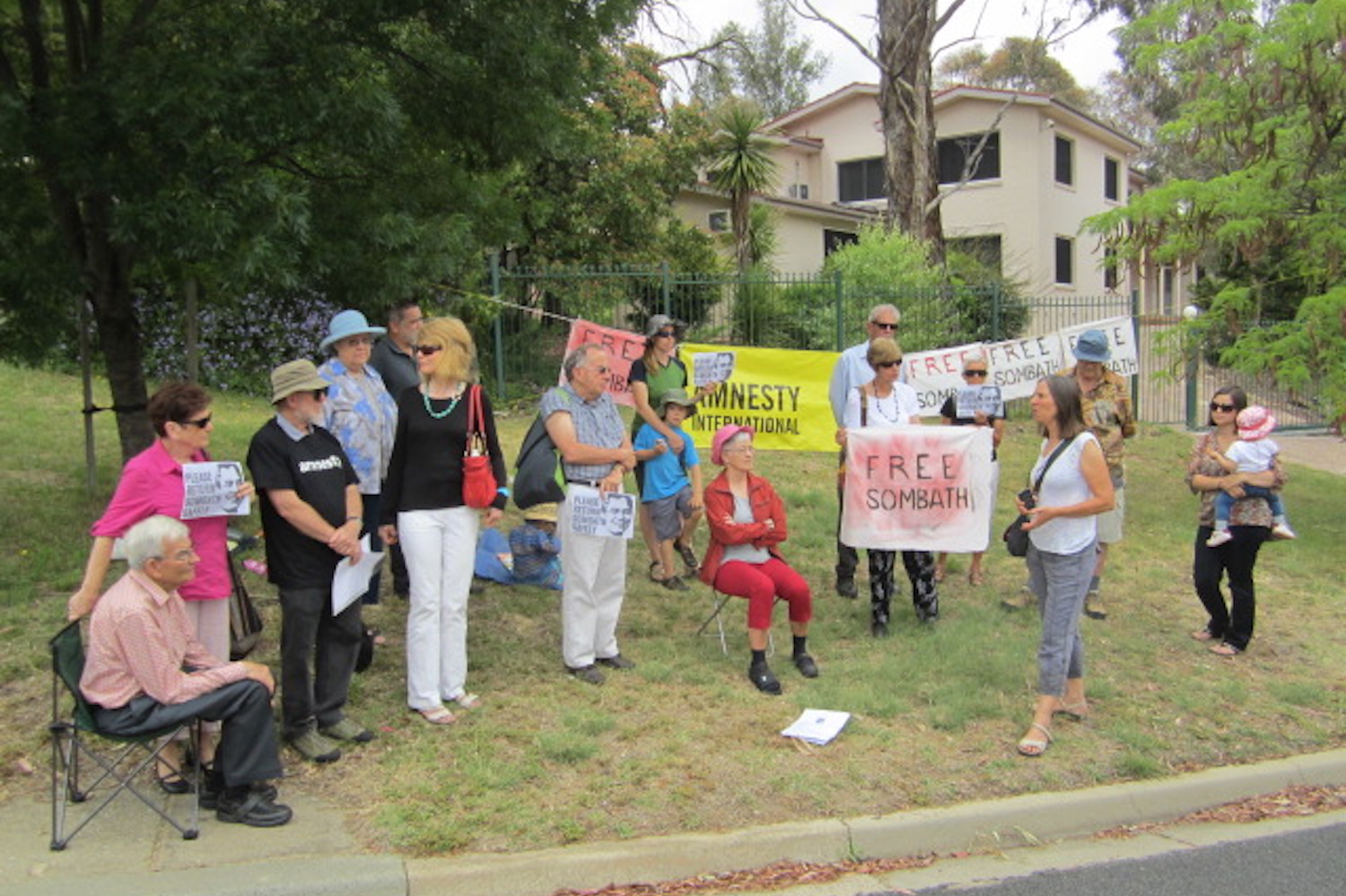Voice of America: 26 June 2017
BANGKOK-Human rights groups say the international community, including the United Nations, needs to press Lao authorities on human rights issues.
The calls come amid a string of harsh jail terms handed down by Lao courts against critics of the Communist government.
Rights groups point to Laos’ failures in taking “significant steps to remedy” a poor human rights record and tough restrictions on freedom of speech, association and assembly.
Three Lao migrant workers were recently sentenced to jail terms of between 12 and 20 years for comments posted on social media while in Thailand and because they attended a protest outside the Lao Embassy in Bangkok.
The three — two men, Somphone Phimmasone, Soukan Chaithad and a woman, Lodkham Thammavorg — were arrested when they returned to Laos after posting the messages critical of the Laos government on social media in Thailand.
Harsh sentencing
The United Nations Human Rights Office for South East Asia (OHCHR) responded in a statement after receipt of official notification, saying it was “alarmed by the harsh sentencing” and called for their release.
The workers posted messages on social media critical of the government in Vientiane, alleging corruption, deforestation, and human rights violations.
The three were paraded in custody on state-run TV at police headquarters in Vientiane. In an official news report, the government said the three had been arrested for threatening national security “by using social media to tarnish the government’s reputation.”
The UN’s OHCHR acting regional representative, Laurent Meillan, said the sentencing of the workers represented “a very harsh punishment, which is not necessary or proportionate and violates the international human rights obligations of Lao PDR.”
Meillan criticized the government for holding the three incommunicado and then forcing them to apologize on state television “for being traitors” to the governing party, the government and the Lao People.
He said the confessions on national TV were “disturbing and in contradiction with the right to a fair trial.”
Conflicting versions
Rights activists said authorities had provided differing versions of the arrests and detention of the three leading up to the sentencing.
Other concerns raised by rights organizations included families being warned by authorities against taking legal action after the verdict or seeking legal representation for their relatives’ in court.
Andrea Giorgetta, Asia Desk director with the International Federation for Human Rights (FIDH), said the verdicts have raised concerns over the Lao judicial process.
“Basically, the government of Laos claims that all the procedures were duly followed, and we know that this is not true and we know that that the right to a fair trial wasn’t respected beginning from when they actually paraded the three suspects at a press conference,” Giorgetta said.
Laos has faced criticism over several cases of harsh sentencing of activists and individuals in past years. In 1999, authorities detained three activists for attempting to stage a peaceful protest. They were sentenced to 15 years in jail.
In 2003, two Hmong were sentenced to 12 and 20 year sentences after serving as guides for foreign journalists reporting on the Hmong in Laos. Lao authorities said they had been guilty of “obstruction of justice”.
Lack of international reaction
Deputy Asia Director for Human Rights Watch, Phil Robertson, said the Lao government appeared to persist with harsh jail terms given there was little significant international reaction compared to the reaction to similar cases in Thailand or Myanmar.
“Laos believes it can get away with such harsh sentencing because no one is paying attention, ‘little Laos’ isn’t on the top of anybody’s priority list. And the system of justice and incarceration there is opaque, that no one is ever going to find out what actually happened to the people once they are sent away [to jail],” Robertson said.
Rights activists have raised their frustrations with regional governments and the international community, including the UN, for what they say is a failure to press Laos harder to improve its human rights record.
Debbie Stothard, secretary-general of FIDH, says the international community needs to take more action to address rights issues in Laos.
“It’s about time we went beyond ‘statements of concern and condemnation’ to actual policies that affected other forms of engagement with the Laotian regime. Laos receives funding — it receives aid and it receives lots of income, revenue through foreign investment and trade and it’s about time we put our money where our mouth is,” Stothard told VOA.
In an email comment to VOA, a U.N. spokesperson for the U.N. Resident Coordinator in Laos said the UN office was in fact working “closely with OHCHR and the other UN agencies to promote human rights” in Laos.
This work included advocating international rights, norms and standards. The spokesperson said the UN had an ongoing dialogue with the Laos government, including the specific cases of the three migrant workers.
After talks with Lao authorities in February, the European Union (EU) said in a statement it had pressed rights issues in a “frank and open atmosphere” including cases of persons who have been detained or disappeared.

